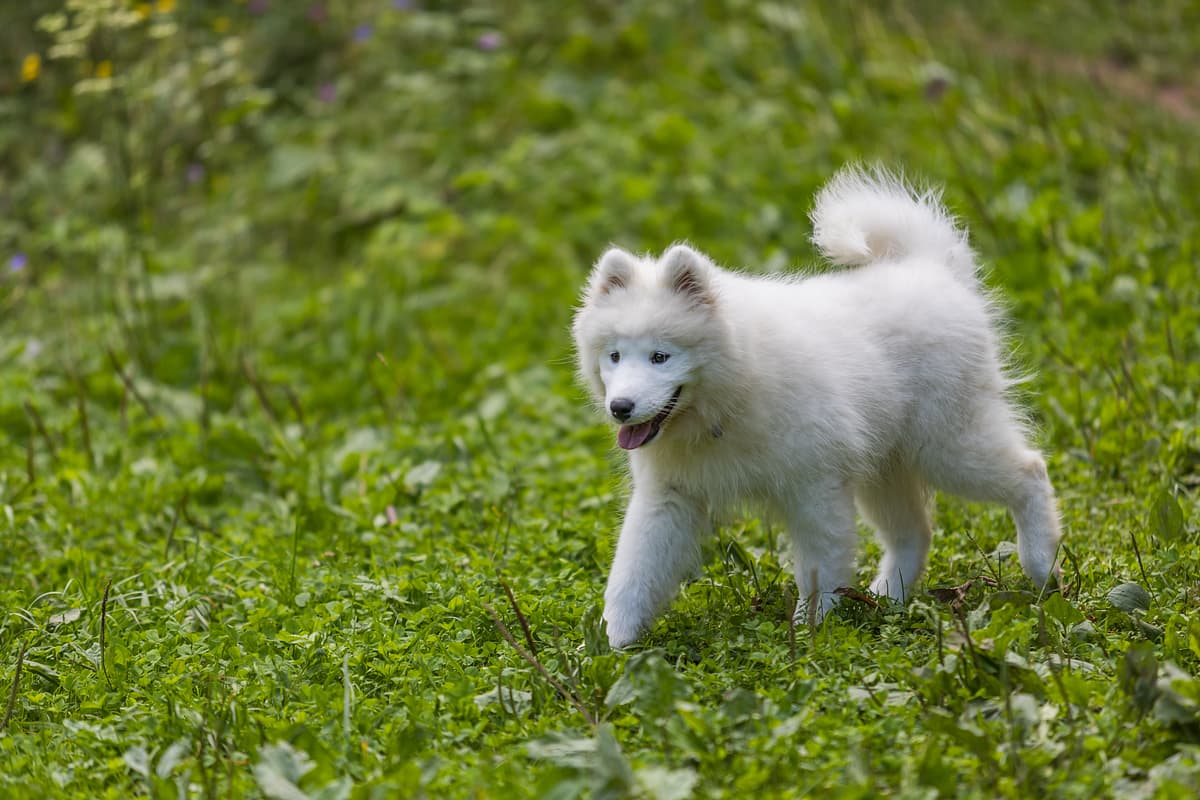Labrador Retriever vs Samoyed
Discover the differences between Labrador Retriever and Samoyed to make the best choice for your situation.
Try different breeds

Labrador Retriever
Eager, friendly, and intelligent, this breed loves being part of an active family. Their gentle nature and loyalty make them outstanding companions for all ages.

Samoyed
Always smiling and brimming with energy, this affectionate dog loves being part of an active family. A thick, plush coat and gentle spirit make the Samoyed a devoted companion.
Quick comparison
Large
29–36 kg
Short double coat, water-resistant
10–12 years
25–32 kg
High energy
Large
20–30 kg
Double coat, dense undercoat
12–14 years
16–20.5 kg
High energy
Personality & behavior
Compare the personality traits and behavioral characteristics of both breeds.
Labrador Retriever
Warm and sociable with people and animals
Quick learner, responds well to training
High stamina, enjoys active pursuits daily
Loves games and interactive activities
Adjusts easily to new situations and environments
Samoyed
Affectionate and sociable with people and dogs
Quick learner, responds well to training
Very active, needs regular vigorous exercise
Loves games and interactive play sessions
Adjusts well to new situations and routines
Care needs
Exercise, grooming, and daily care requirements
Labrador Retriever
Hip dysplasia, elbow dysplasia
Samoyed
Hip dysplasia, progressive retinal atrophy
Suitability
How well each breed fits different living situations and families
Labrador Retriever
Great choice
Patient and eager to please, Labradors are manageable for most first-time owners.
Not ideal
Labradors need space and exercise, so apartments can limit their activity needs.
Perfect fit
High energy and stamina make them excellent for active individuals or families.
Highly suitable
Gentle temperament and playful nature make them safe and loving with young children.
Very friendly
Generally sociable and get along well with other dogs and pets.
Prone to anxiety
Extended alone time can lead to boredom and destructive behaviors in this breed.
Samoyed
Challenging for novices
Their grooming and exercise needs can overwhelm inexperienced owners
Needs more space
Samoyeds require room to move and can be noisy in small apartments
Excellent match
They thrive with active families who enjoy outdoor activities and frequent exercise
Very friendly
Gentle, playful, and patient with children, making them a good family companion
Generally compatible
Usually sociable with other pets if socialized early and consistently
Not recommended
They dislike being alone and may develop destructive behaviors or separation anxiety
Breed strengths
What each breed excels at and their best qualities
Labrador Retriever
- Friendly and sociable with people and dogs
- Highly trainable and eager to please
- Excellent with children and families
- Strong retrieving and swimming abilities
- Generally adaptable to various living situations
Samoyed
- Friendly with people and other dogs
- High tolerance for cold weather
- Intelligent and eager to learn
- Loyal and affectionate with family
- Generally healthy and hardy breed
Challenges & considerations
Potential challenges and considerations for each breed
Labrador Retriever
- Prone to obesity without portion control
- Can become destructive if under-exercised
- Heavy seasonal shedding requires regular grooming
- May develop hip or elbow dysplasia
- Needs significant daily physical activity
Samoyed
- Heavy seasonal shedding requires frequent grooming
- Prone to separation anxiety when left alone
- Can be stubborn during training sessions
- High exercise needs for physical health
- Strong prey drive may chase small animals
Ready to choose your perfect breed?
Learn more about each breed or compare other breeds to find the perfect match for your lifestyle.
Discover more helpful tools
Make use of our other free tools to get the most out of your pet experience

